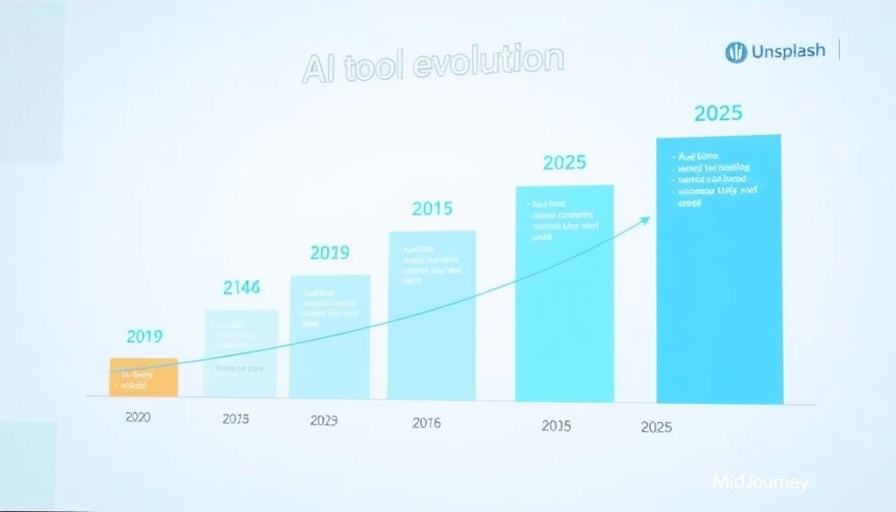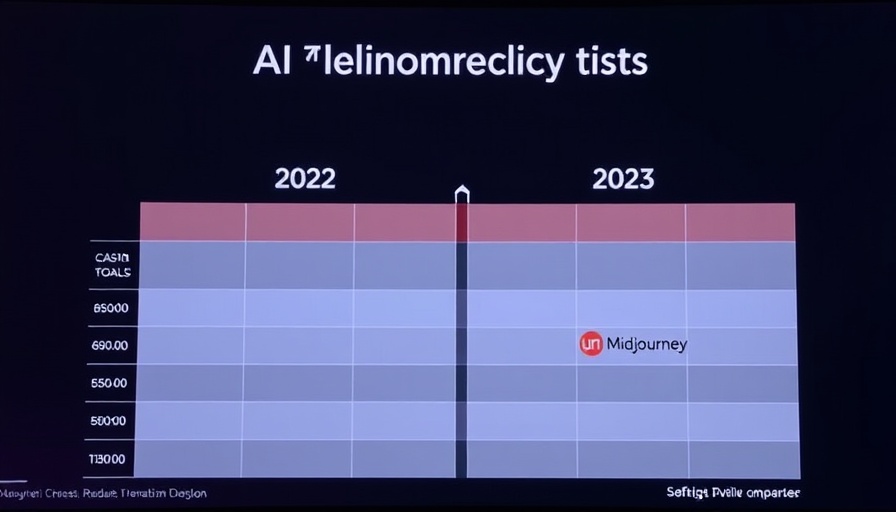
Revolutionizing the Future: Top AI Tools for 2025
As we advance closer toward 2025, the integration of artificial intelligence across industries is poised to reshape how businesses operate, ensuring greater productivity and innovative solutions. In the short video titled Top 5 AI Tools You Need in 2025, key tools have been highlighted that can significantly impact small businesses and entrepreneurs alike.
In Top 5 AI Tools You Need in 2025, the discussion dives into the emerging technologies that will shape our approaches in the business landscape.
Understanding the Importance of AI in Business
Today's marketplace demands agility and efficiency, and AI technologies can fulfill these needs. Imagine running a marketing campaign that automatically adjusts based on real-time analytics or customer interactions—tools that can analyze and predict user preferences are no longer a luxury but a necessity. This transformation not only streamlines operations but also empowers business owners to make informed decisions swiftly.
AI and Data Privacy: Navigating the Landscape
With technology—especially AI—comes a critical dialogue around data privacy. As AI tools gather and process vast amounts of personal information, concerns arise about ethical use and compliance with regulations, particularly in a landscape that is often ahead of the law. Entrepreneurs need to equip themselves with an understanding of how new tools uphold or jeopardize data privacy to retain customer trust.
Ethical Use of AI: Striking a Balance
As AI becomes more integrated into everyday business functions, the ethical implications of using AI must be at the forefront of any strategy. Ethical considerations revolve around biases in AI algorithms, transparency in processes, and user consent. Business owners should prioritize ethical AI tools that promote fairness and inclusivity to not only mitigate risks but to also establish a positive brand image.
Decentralized AI Platforms: The Future of Technology?
Decentralized AI platforms represent an intriguing shift from traditional AI models. These platforms aim to distribute power and data management to users rather than funneling everything through central authorities. With more emphasis on data ownership and privacy, decentralized applications may empower individuals and smaller businesses while enhancing control over how AI processes their data.
Future Predictions: How Government Regulation Will Shape AI
The trajectory for AI innovation will inevitably encounter regulatory frameworks. As legislative bodies catch up with technology, predictions for how AI will develop are closely tied to the effectiveness of these regulations. Forward-thinking business owners must stay informed about potential regulations governing AI operations, positioning their companies to adapt swiftly to any legislative changes.
Freedom of Speech and AI: Balancing Innovation and Regulation
In the age of AI, the relationship between innovation and freedom of speech faces intensive scrutiny. As platforms utilize AI to monitor content, it raises questions about censorship and user-generated content. Entrepreneurs should be cognizant of how tools that automate content moderation could infringe upon free speech, encouraging an ethical approach that fosters open dialogue.
Actionable Insights for Entrepreneurs: Implementing AI Tools
To navigate the anticipated surge of AI in everyday business practices, entrepreneurs must implement tailored strategies. This includes researching the tools that best fit their operational needs, understanding the ethical implications of these tools, and staying abreast of evolving regulations. Engaging with industry forums and staying connected to thought leaders in the AI space can provide valuable insights and foster collaboration.
With the rapid evolution of AI, the future is both exciting and challenging. Entrepreneurs cannot afford to remain passive observers; they must proactively integrate these advanced technologies into their operations while advocating for responsible and ethical practices. Embracing AI is not merely a choice but a necessary step toward sustainable growth.
 Add Row
Add Row  Add
Add 




Write A Comment